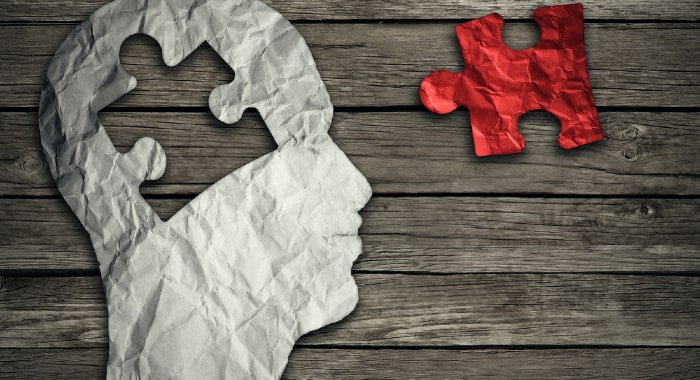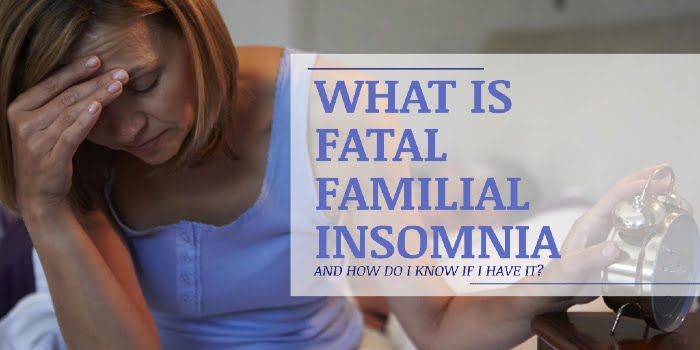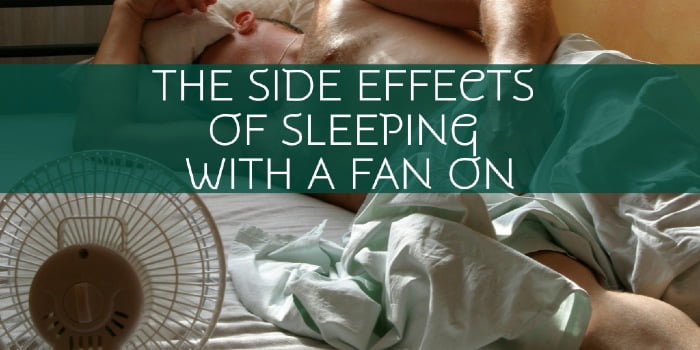Sleep is absolutely essential for us to be our healthiest and happiest.
A lack of sleep won’t just cause you to be grumpy and slow, it can have dire effects to your health, mental wellbeing and increase your risk for certain diseases like heart disease, cancer and diabetes. That’s why it’s important to get your recommended 8 hours a night.
Unfortunately for some people, sleep is impossible. And for a very rare set of individuals, they’re suffering from a fatal condition that deprives them of sleep until they die, called fatal familial insomnia.
In this guide, we’re going to tell you what is fatal familial insomnia, what causes it and how to tell if you’re having some sleepless nights or if you are one of the rare people who might have this fatal condition.
What is fatal familial insomnia?
Fatal familial insomnia is a type of rare sleep condition that stops you from sleeping. It’s caused by a mutated protein, called a prion, which attacks the part of the brain that controls and regulates sleep.
As the disease progresses, it will stop people from being able to sleep, causing death.
Symptoms of the disease will start anytime between the late 20s and the early 70s, though most people will start seeing symptoms around 40 years old. Once these symptoms first develop, the disease will rapidly grow and accelerate, giving a life expectancy of between 7 months to 6 years.
Fatal familial insomnia is a genetic disease and is passed on through parent to child.
What causes fatal familial insomnia?

Fatal familial insomnia is caused by a mishappen protein in the brain called a prion. This mutation is caused by a small generic mutation, which is then passed on through the generations.
In early life, prion doesn’t seem to cause many issues. But around middle age, the protein starts to collect together in little pockets in the brain, poisoning your neurons. One place that they gather in particular is the hypothalamus.
The hypothalamus is an incredibly important part of your brain. It’s what controls the release of hormones, regulates your body temperature and controls your sleep. As we’ve explained in this ultimate guide to sleep, the cells inside your hypothalamus (the suprachiasmatic nucleus) received and process information about light exposure.
When it’s dark outside, the SCN processes this information and sends a signal to your pineal gland to start producing melatonin. Then, your hypothalamus will also send a message to your brain stem to create GABA, a naturally occurring amino acid that blocks certain brain signals to decrease activity and help get your brain ready for sleep.
In short, the hypothalamus is the control centre of your brain for sleep.
For people with fatal familial insomnia, the prion protein will start to gather in small pockets inside your hypothalamus. If you could see inside the brain, it will look like someone has drilled tunnels inside of it.
These protein pockets stop the hypothalamus from doing its job. They block and confuse the signals that it needs to function, sending your sleep and temperature control into chaos mode. It’s like someone going into your house, smashing your central heating, bursting your water pipes and chasing you around with a chainsaw every time you want to go to sleep.
It’s an impossible situation that the brain can’t handle, meaning these functions just stop working.
Interestingly, the protein prion is also responsible for Creutzfeldt–Jakob disease (CJD) and Mad Cow Disease, which affects the brain in a different way. It’s an incredibly troublesome protein to have.
What are the symptoms of fatal familial insomnia?
Symptoms of fatal familial insomnia can occur anytime between the late 20s to your early 70s. Typically, the symptoms most commonly appear for people in their 40s.
The early symptoms of fatal familial insomnia are:
- Inability to fall or stay asleep (insomnia);
- Difficulty thinking and concentrating (cognitive impairment);
- Short-term memory loss;
- Weight loss;
- Difficulty coordinating movements;
- High blood pressure;
- Inability to maintain body temperature;
- Excessive sweating;
- Incontinence.

As time goes on, these symptoms will only get worse and more extreme. With sleep loss, people also experience:
- High blood pressure;
- Rapid heart rate;
- Extreme weight loss;
- Uncoordinated movements (ataxia) or loss of control;
- Hallucinations;
- Severe confusion or delirium;
- Difficulty swallowing;
- And more…
Eventually, people with fatal familial insomnia will reach a point where they can no longer take care of themselves before they die. Will occur anywhere between 7-73 months after the inial symptoms first show.
What’s the difference between insomnia and fatal familial insomnia?
Insomnia is when you have difficulty sleeping, which can be caused by a variety of factors such as:
- Stress, anxiety or depression;
- Loud or disruptive noises;
- A room that’s too hot or cold;
- Uncomfortable beds;
- Alcohol, caffeine or nicotine;
- Recreational drugs like cocaine or ecstasy;
- Jet lag;
- Shift work.
Usually, by fixing these triggering factors, such as removing noise, distractions and getting a new comfortable mattress, insomnia can be treated and lifted.
Fatal familial insomnia is an incredibly rare sleep disorder that is fatal. It’s caused by a mutated protein called prion, which is genetically passed down through families.
People with fatal familial insomnia don’t get better. Over time, their symptoms will get worse and worse until they eventually die. In addition, people with fatal familial insomnia will also have trouble regulating their body temperature and other body functions, which doesn’t happen for those with insomnia.
On the other hand, insomnia can be managed and treated and is non-fatal.
| Insomnia | Fatal Familial Insomnia |
| Non-fatal | Fatal |
| Very common | Incredibly rare |
| Lots of causes | Caused by the mutated prion protein |
| Can be treated and managed | Untreatable |
| Normal temperature regulation | Loss of temperature regulation |
How do I know if I have fatal familial insomnia?

If you start to experience the above symptoms AND have a family history of fatal familial insomnia, you should contact your GP straight away.
If you’re experiencing some of those symptoms but don’t have a family history, it’s more likely that you might be expiring another type of sleep disorder or regular insomnia. Remember, fatal familial insomnia is incredibly rare. In fact, fewer than 40 families around the world are thought to have this disease.
If you have no family history, try following this advice to get a better night’s sleep. If nothing improves, go and see your GP to see what might be causing your sleep issues.
Can people with fatal familial insomnia fall asleep?
Sort of. People with fatal familial insomnia lose the ability to get a full or normal night’s sleep because the mutated protein prion has destroyed the part of the brain that controls this process.
There are 5 stages of sleep that you go through every night. These are:
Stage 1
This is your lightest stage of non-REM (rapid eye movement) sleep. t’s where you start to transition from wakefulness to sleep. So, your breathing and heart rate will slow. Your muscles relax and your brain waves will begin to quieten down as your thoughts drift off.
Stage 2
This is another light stage of sleep before you enter deep sleep. You’re not as easily disturbed as you are in stage one and is where your eye movements stop and your brain waves fully slow down, apart from an odd burst of electrical activity. Around 50% of your time asleep is spent in this stage of sleep.
Stage 3 & 4

This is your deep sleep phase. Stages 3 and 4 are often grouped together because they are both types of non-REM sleep where your body energises itself to feel refreshed and awake in the morning. It’s the time where your heartbeat and breathing slow to their lowest, your muscles are completely relaxed and you’re less likely to be woken up.
Stage 5
REM sleep. This is where your brain is most ‘active’ during the night and is where we process thoughts, emotions and memories of the day. It’s also the stage where we dream, or that sleep disorders like sleepwalking occur.
Each cycle takes around 90 minutes to complete and will happen about 4-5 times a night.
For people with fatal familial insomnia, they will never enter this sleep cycle because their hypothalamus will always be sending signals. This means that when they are asleep, they’ll be in a loose form of REM or stage 5 sleep, and never enter the ‘deep sleep’ that they need to rest and recover.
In this state, people with fatal familial insomnia are not quite asleep, and not quite awake. Some of them might actually mindlessly mind everyday activities or ‘act out dreams’ without realising it, putting them into a deprived zombie-like state.
How did fatal familial insomnia spread?
The first known case of fatal familial insomnia was traced back to a Venetian doctor in the 18th century. It was passed on to his children and through the generations, which is why it’s still present today.
But there are two issues with this disease that caused it to spread. The first is that most symptoms don’t occur until late adulthood, meaning that most people will have already had children and passed on the disease without realising it.
The second is that some families kept the strange disease a secret, as outlined in the book The Family Who Couldn’t Sleep: Unravelling a Venetatial Medical Mystery. They didn’t know what caused the disease and kept quiet in order not to tempt fate.
As family trees grew and expanded over the centuries, the disease spread. But don’t worry, it’s still incredibly rare. If you don’t have anyone in your family tree that’s also suffered from this disease, the chances are you haven’t got it.
Will I pass on fatal familial insomnia to my children?

As we’ve pointed out earlier, this disease is predominantly passed down genetically. So, the bad news is that if you’re diagnosed with fatal familial insomnia, there’s a 50% chance of passing it onto your child.
Now, 50% could mean that your children will be fine. But it’s a high chance that you need to be wary about – and warn your children of so they can be vigilant for the signs and symptoms before they show.
If you’re diagnosed before having children, it may be worth thinking about adoption or other means of having children to prevent this gene from being passed on.
Is there a cure for fatal familial insomnia?
No, there is no cure for fatal familial insomnia.
Once the symptoms begin to sink in, everyone that has it will slowly start to deteriorate. Within a few months to a few years (if they are lucky) they will be dead.
However, the good news is that there have been clinical trials of a drug called doxycycline that decelerates the formation of the prions in the brain, slowing down the deterioration. For people showing early signs of the disease, trials showed that people on the drug lived twice as long as those without, extending the lifespan by an average of 13 months.
Sadly, the drug in question hasn’t shown much progress with those with aggressive symptoms. So, the earlier you diagnose fatal familial insomnia, the better.
How much sleep loss is fatal?
The longer you go without sleep, the worse you’ll feel. You’ll also increase health risks for conditions like heart disease, cancer, diabetes and more.
There’s no definitive answer with how much sleep deprivation is fatal. In some cases, even a small lack of sleep can prove fatal as it might cause accidents, particularly if you are driving or operating heavy machinery.
In the short term, this is what happens to your body without sleep.
At 24 hours, you’ll start feeling the effects of sleep deprivation. These will include:
- Mood changes, such as feeling irritable and increases stress.
- Lapses in concentration and problems with short term memory.
- Reduced coordination and a higher risk of accidents.
- Impaired judgement.
- Increased blood sugar levels.
- Muscle tension.
The CDC also states that staying awake this long is comparable to having a blood alcohol content (BAC) of 0.10% which is over the legal driving limit. If you haven’t slept, you should avoid driving or operating any heavy machinery to avoid accidents or fatal incidents.
At 36 hours, your health will take a sharp decrease. This is where you have high levels of inflammatory markers in your blood, which contribute to high blood pressure and heart disease.
In addition, you’ll suffer from more mood swings. Your short-term memory also becomes more affected at this point, leaving you with blank hours that you cannot recall.
The more time goes on, the worse the symptoms get.
At 48 hours, your body will start to carry out ‘microsleeps’. This is an involuntary way of becoming completely unconscious, lasting from single second to half a minute. Microsleeps are incredibly dangerous depending on what you’re doing at the time and will also leave you disoriented and not aware of what just happened.
After 72 hours without sleep, it will extremely hard to concentrate on anything and will have more gaps in your memory. At this point, you are also more likely to suffer from hallucinations. Your mood will also fall and can lead to a depressed or paranoid state.
The long and short of it? Sleep is important. Without it, we don’t function. In extreme cases, we die.
Struggling to sleep?
If you’re having difficulty sleeping at night, we can help.
Our website is filled with helpful advice and tips to getting a solid night’s sleep, including:
- How to transform your sleep with the top 9 tips for good sleep hygiene
- The top relaxation exercises for sleep anxiety you need to know
- The quickest ways for you to go to sleep at night
And much more, including leading product reviews, trusted sleep disorder information and other solutions for a solid night’s sleep.
Whatever you need, we’ve got you covered.






